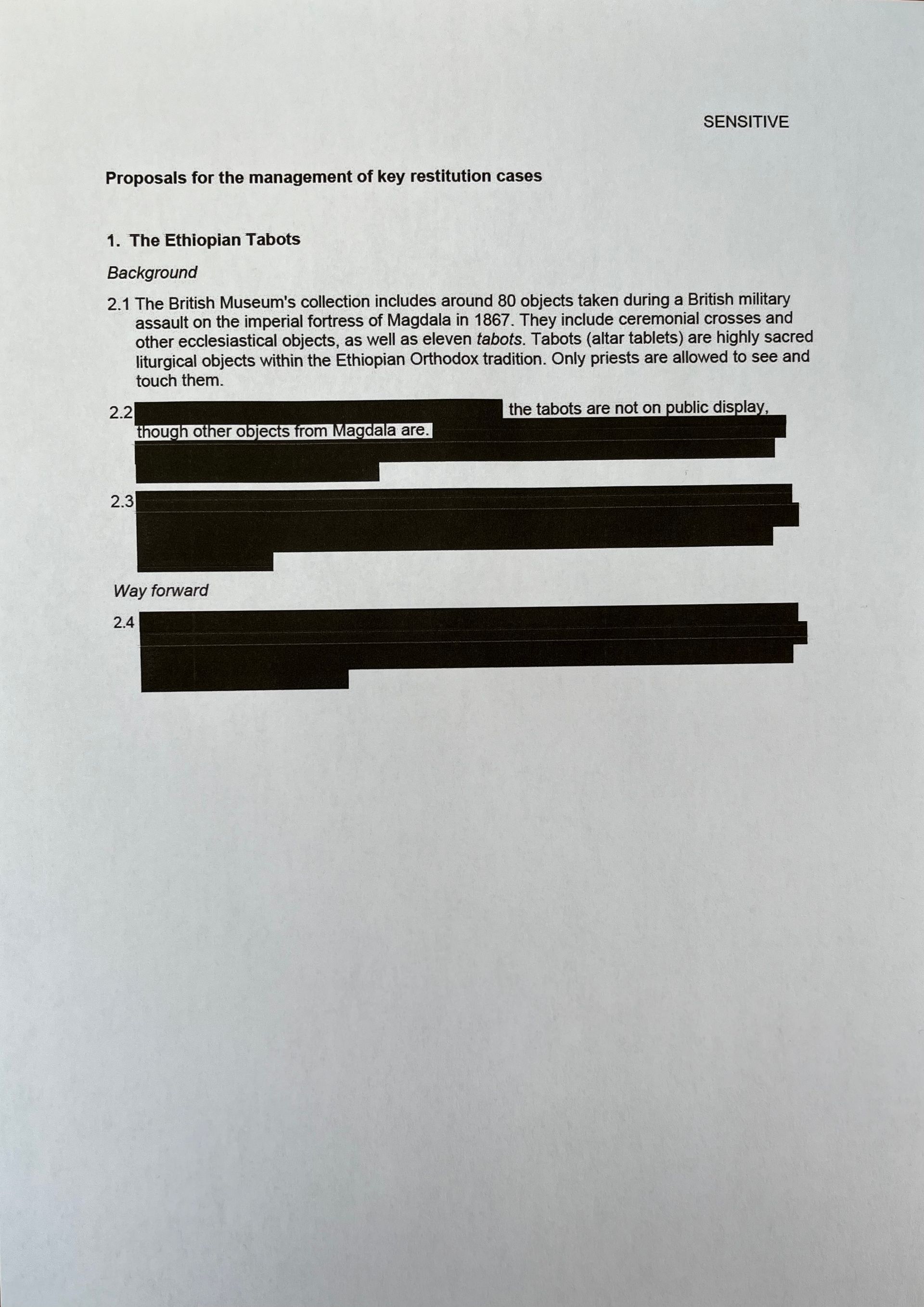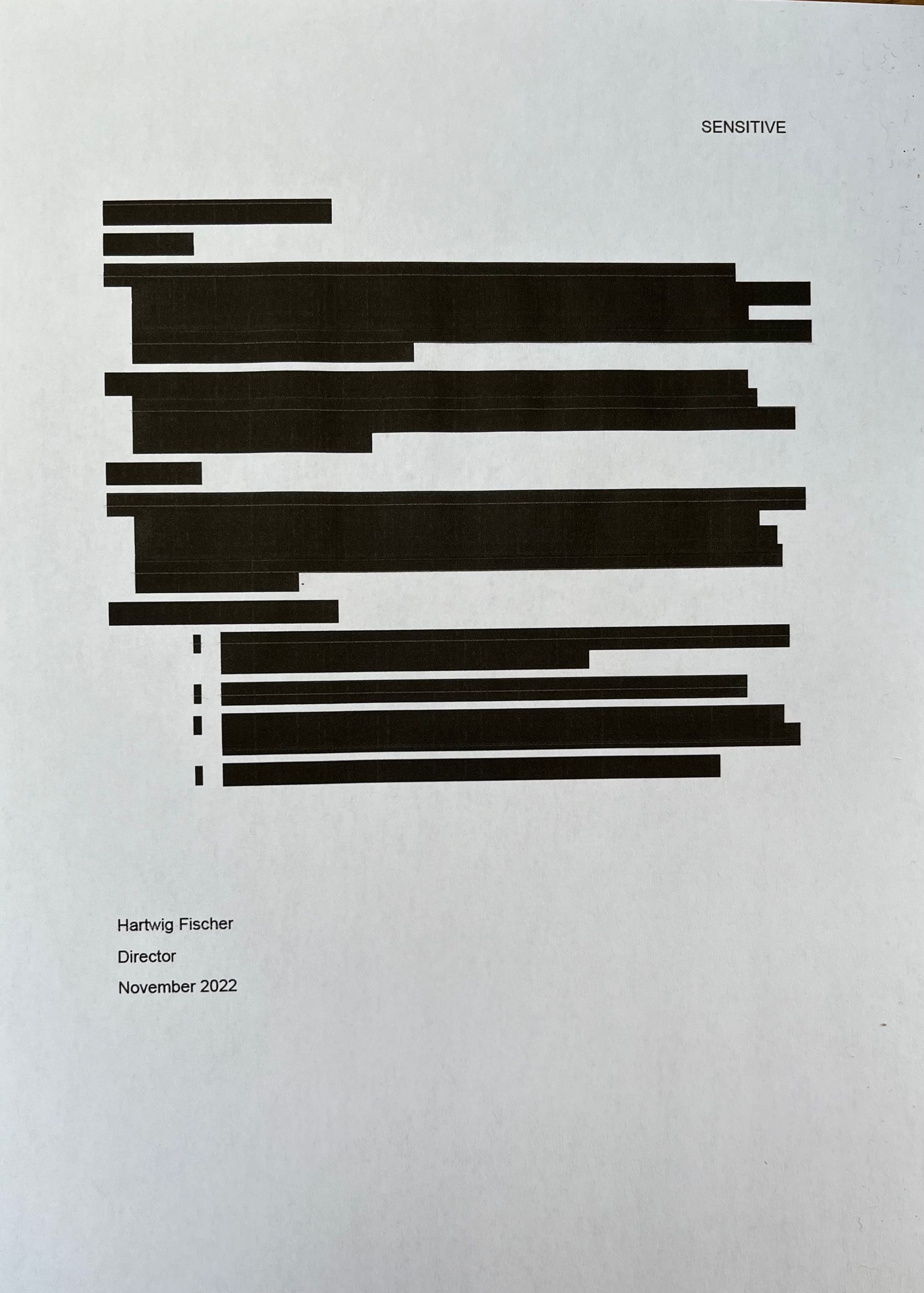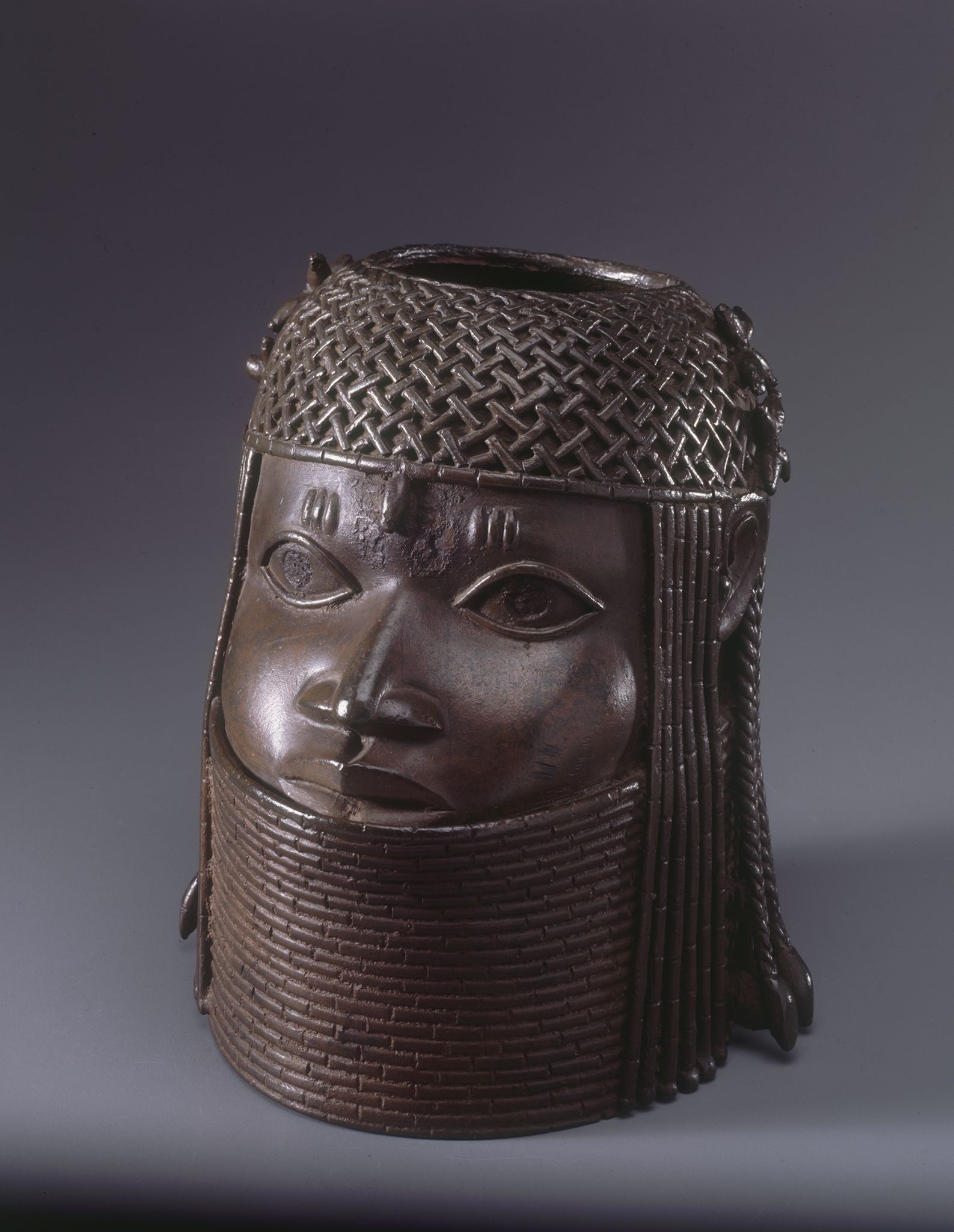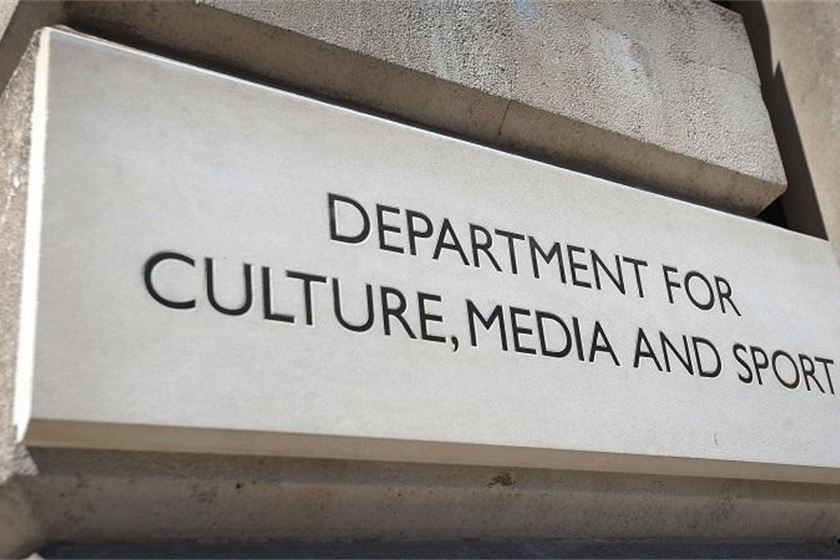Cultural Restitution
SHARE ARTICLE
The British Museum has shown itself adept at refusing to provide information to questions they’d prefer not to answer. We hope our initiative to escalate concerns about the Museum’s collection of Ethiopian Tabots to the Information Commissioner’s Office will encourage greater transparency.
Returning Heritage believes the exemptions the British Museum is using to retain eleven sacred Tabots that can be returned to Ethiopia without breaching the Museum’s existing governing Act have been wrongly applied. As a result, together with Leigh Day, a leading firm of lawyers established to combat injustice, we have submitted a formal complaint to the Information Commissioner’s Office (ICO).
The ICO has confirmed our complaint is eligible for investigation and a caseworker has been assigned to oversee the investigation.
In August 2023, Returning Heritage made its fourth Freedom of Information (FOI) request to the British Museum, inviting the Museum to provide information on key meetings of its Board of Trustees where the issue of the Ethiopian Tabots had been discussed. These meetings were held between 2004 and 2022. Our aim is to understand why the Trustees appear to believe (falsely) they cannot lawfully remove the Tabots from the Museum’s collection.
The ICO's investigation into the Museum's failure to provide answers has attracted significant, global media attention, including an interview on BBC News.
Ever since our first FOI request made to the Museum in September 2022, we have reminded the Trustees of a legal opinion, commissioned by the Scheherazade Foundation in 2021 and circulated to all members of the board that year, which confirms the Tabots can be lawfully repatriated to the Ethiopian Orthodox Church on the grounds they are ‘unfit to be retained’.
As we’ve written many times before, the Tabots are so sacred they can never be exhibited, studied, copied or photographed. Since 1868, when eight of the Museum’s eleven Tabots entered the Museum’s collection, they’ve been kept permanently out of sight - unavailable to the public, the Museum’s curators and even the Museum’s Director and Trustees. Retaining them is shameful for an institution whose published aim is to ensure the collection is housed in safety, conserved, curated, researched and exhibited. *
Section 5 in the British Museum Act 1963 (‘Disposal of Objects’) allows for objects to be repatriated if, in the opinion of the Trustees, the objects are “unfit to be retained” and can be removed “without detriment to the interests of students”.
It’s hard to imagine another group of objects that so evidently meet these criteria. However, following our latest FOI request, the Museum will not even confirm whether it has sought external legal advice that it can return the Tabots to Ethiopia under this Act.
The other information and documents we’ve requested are either still being withheld or have been sent to us heavily redacted. We’re especially interested to learn about the proposals for the management of the Tabots made by former Director Hartwig Fischer in a paper he presented to the Trustees on 8 December 2022. In a covering note, Jonathan Williams, then Deputy Director, described the Tabots, together with one other unidentified object(s), as “two of the most controversial restitution issues currently being faced by the Museum”.
The Museum has forwarded other redacted documents to us in the past, but the extent of redactions on this document from Hartwig Fischer is beyond reasonable. Disclosure of this information is hardly a risk to state security.


Redactions made to Hartwig Fischer's proposals for the management of Ethiopian Tabots in
the British Museum. November 2022
As it has to each of our four FOI requests, the Museum continues to apply the section 27 exemption, meaning the disclosure of the information we’ve requested would prejudice the UK’s relations with another State. As the Ethiopian Orthodox Church does not constitute either the government or an organ of Ethiopia’s government, this argument is clearly untenable. It's equally true that UK relations with Ethiopia can only benefit from the return of the Tabots.
We’re also concerned the Museum continues to underestimate the significant public interest in favour of disclosure of information about the Tabots. “The information sought concerns decision-making by a major public institution on a matter of very significant public interest,” said Tom Short, a solicitor at Leigh Day. “That the Museum should attempt to withhold such information from public scrutiny is surprising, not least at a time when recent events have shown a clear need for light to be shone on how the Museum conducts its business.”
It's a mystery to us why the British Museum clings on to a group of objects so clearly unsuitable for anywhere other than the sanctity and protection of the Ethiopian Orthodox Church. Full disclosure can only benefit the Museum, whose decision-making process and reputation is still being questioned. We hope the new Director, Nicholas Cullinan, will bring fresh energy and long overdue transparency to operations at the British Museum. They may have no alternative if the Information watchdog rules in favour of our complaint.
* www.britishmuseum.org/about-us/governance



